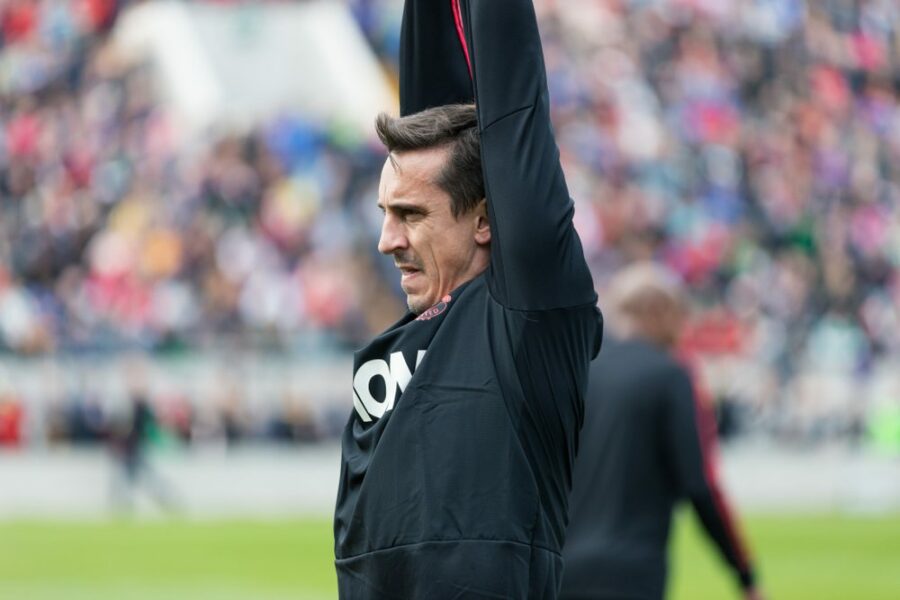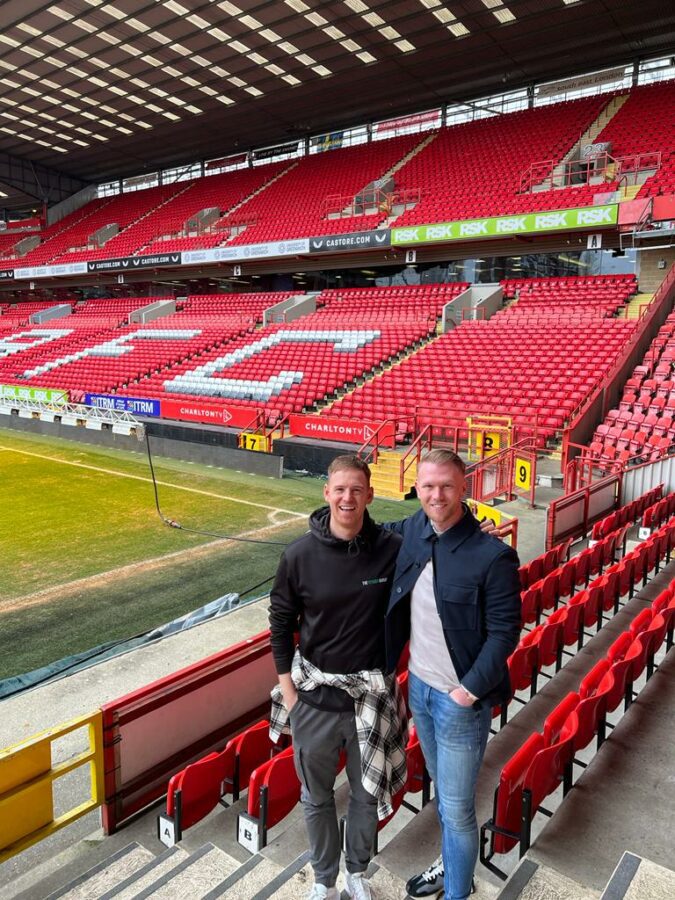
From Footballer to Personal Trainer, we at The Fitness Group have supported hundreds of footballers to transition from their existing career into the fitness industry.
We are proud to be the official partner for The PFA, League Football Education and the SPFA.
According to the English Professional Footballers’ Association (PFA), around 700 players a year are released by their clubs. Some of those releases are due to age, but there are many reasons why a football career might be cut short.
That’s why every footballer needs to have a backup plan. And for many football players, becoming a personal trainer looks increasingly appealing. The question is, can anyone be a personal trainer? Are footballers particularly suited to a career helping others reach their health goals?
Contents
Post-Football Careers
It’s not surprising that many ex-footballers look for a related career once they stop playing full-time. But footballers have skills that make them highly suitable for a wide range of career choices. Here are some of the top examples:
Football Management
It makes sense for many players to become professional football managers. Their knowledge of the game, especially if they played at higher levels like the premier league, makes management very appealing. Some big-name managers started as players, like the Barcelona and Spain international Pep Guardiola.
Some former players have gone further and bought a football club. In 2014, Salford City was bought by a group of former Man Utd players, including Ryan Giggs and Gary Neville. However, not every player can become a good manager. Firstly, there aren’t enough positions available. Secondly, being a football manager is very different from being a player, and so it can be a hard transition to make.

Media Roles
For footballers who still want a foot in the game but aren’t interested in management roles, there’s always been a steady flow of names who flock to the media. Well-known examples include Gary Lineker, Jamie Redknapp, Ian Wright and Rio Ferdinand, to name just a few. Of course, to land those jobs, you need to have been a big name and be loaded with confidence.
For players in the lower leagues, there are still media roles available. Plenty of regional sports shows and local newspapers look for insights from ex-professional footballers. It can be a hard career to break into without the backing of fame, but it’s doable.
Business Owners and New Careers
Using the money they earned and the skills they learned while playing football, it’s no surprise that many ex-players end up running their own business. Tom Finney, often called one of the best football players of all time, retired from football and started earning a living as a very successful professional plumber.
Others simply switch to a new career. Blackburn Rangers player Stuart Ripley is now working as both a lecturer and a solicitor, while Jeff Whitley of Man City is a used-car salesman. That’s a wide range of options, and there are few barriers to successfully starting a second career once you age out of the game.
Of course, an increasingly popular option is to become a personal trainer. It combines many of the skills and attributes picked up by players and lets them take charge of their career growth because they’re running their own business. And there are some exciting advantages to becoming a personal trainer after a career as a footballer.

Advantages of Being a Personal Trainer as an Ex-Footballer
Even in the lower leagues, footballers are used to working alongside coaches, performance specialists and nutrition experts. That means ex-players have a wealth of established skills and knowledge that directly complement being a personal trainer. For any footballer leaving the game, it’s worth checking out what’s needed to enter this exciting career.
There are some key advantages that footballers have, too. Making the switch to a personal training career offers some benefits that other former careers may not. Can anyone be a personal trainer? Of course, but ex-footballers might find the following benefits particularly appealing:
Running Your Own Business
Players don’t get a lot of control over their training regimes, time management or even their future. Becoming a personal trainer that works freelance (as in, not hired specifically by an employer, like a gym) means total control over how much you work and how much you charge.
Of course, you’ll still have to work as and when your clients have availability, but since you can establish those boundaries yourself, having control over your working life can be very liberating for footballers of all levels. Football requires a level of belief in yourself too, and that confidence is ideally suited to business management.
Branding
While you might assume branding is reserved for big corporations, it’s a vital part of running even a small business. To stand out from other personal trainers, using your career as a footballer as the foundation of your branding can be extremely valuable. After all, footballers have a reputation for being fit and healthy, and those are the goals your clients will want you to help them with.
Branding is a big subject, but it all comes down to how you market yourself. Marketing yourself as a personal trainer will be a big part of the job. Your career as a footballer can become a critical part of your marketing strategy. You could even use your football knowledge to target young footballers who want to work on their fitness levels, earning a niche market unavailable to other personal trainers.
Optimal Health Levels
It’s likely that you already have a solid baseline of fitness and a proven track record for maintaining your health. That puts you in a much stronger position than someone starting from scratch. Your knowledge of nutrition may already be pretty good, and that knowledge will only grow as you work through your qualifications.
With an awareness and knowledge set higher than average, you’ll find it much easier to boost that knowledge than anyone starting from the beginning. While anyone can become a personal trainer, those with an established baseline of health, fitness and knowledge will find that skill set advantageous.
Connections and Networking
Think of all of the people you know who are either still playing football, involved in the game as coaches or managers or have moved from playing to something entirely different. From the people you’ve played alongside to those on opposing teams, you likely have a wide and connected network.
Running a personal training business, you’ll find word of mouth is one of your best marketing strategies. So having a network so focused on health and fitness already will help you when it comes to getting the word out. Get in touch and let people know what you’re doing and what you need. You might be surprised by how much help you get.
From Footballer to Personal Trainer
Your work alongside experienced coaches and nutrition experts will give you a series of unique insights that will help make the switch to personal training a lot easier than you might think. You already have a wealth of knowledge about the practical side of health and fitness, too. Your understanding of fitness can only help when it comes to helping others reach their fitness goals.
So if you’re a player considering what to do after your contract ends or you’ve recently left the game, and you’re not sure what to do next, contact the team at The Fitness Group today. We don’t just give you the training you need to teach others; we also advise on the business side of things. Together, we can take your new career to a whole new league.

